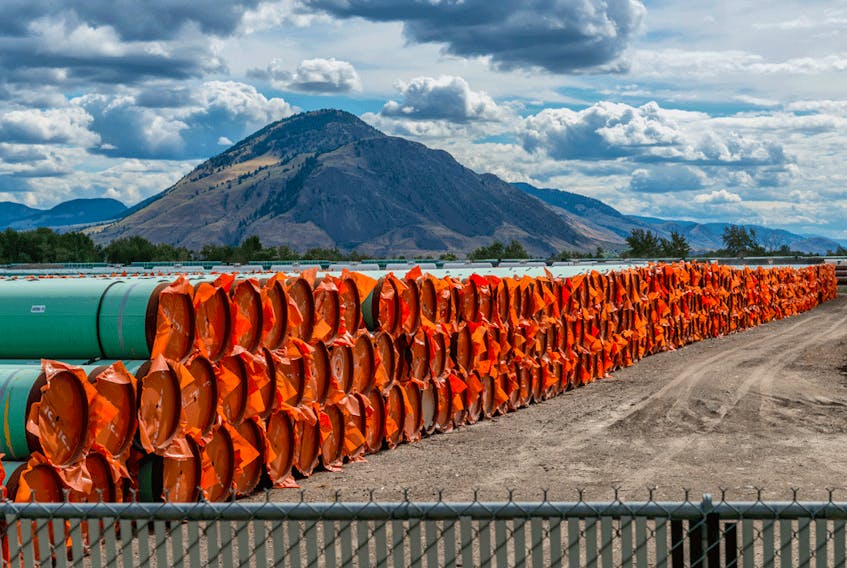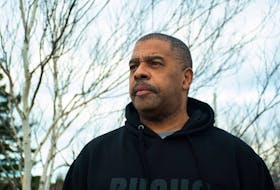The latest appeal by First Nations groups against the Trans Mountain pipeline could be completed in as little as a few months, say legal experts, but still brings new uncertainty to the project just as the Liberals prepare to kick off their re-election campaign.
The Federal Court of Appeal on Wednesday ruled that six Indigenous-led groups would be granted the right to argue against the federal government’s re-approval of Trans Mountain, which was given the green light by Prime Minister Justin Trudeau in June. The court declined another six applications to appeal.
University of Calgary professor David Wright said it was “fathomable” that the hearing process could be completed in three to four months, as it will be tightly focused on whether Ottawa met its duty to consult with Indigenous peoples. Ottawa, led by Natural Resources Minister Amarjeet Sohi, launched a second round of consultations with First Nations in October 2018, after the federal court forced it to repeat a portion of its discussions with communities. Wright also stressed that timelines on the process are highly uncertain.
“You’re really looking at the court scrutinizing consultation activities over just a four-month period, on issues that everybody already knows very well,” he said.
“I’d say the recipe is there for it to be a relatively quick process—not simple, but quick.”
The court’s decision on Wednesday does not effect construction of the pipeline itself, which is set to begin this month, according to the company. The National Energy Board, now called the Canada Energy Regulator, reinstated Trans Mountain’s construction permits in mid-July.
In his decision, Justice David Stratas stressed that the court challenge would be held to the “narrow issue” of federal consultations with Indigenous people, while dismissing other arguments that focused on environmental issues and a purported “bias” by the federal government to have approved Trans Mountain while simultaneously owning the project.
“Parliament’s purpose is plain: a project is not to be hamstrung by multiple, unnecessary, long forays through the judicial system,” he wrote. “Any recourse to the judicial system must be necessary and as short as possible.”
Stratas called for parties to submit their notices of application for judicial review within seven days, but did not provide a timeline for the rest of the process.
“The court took great pains to emphasize that this will be a short and strictly defined period,” said Vivek Warrier, lawyer at Bennett Jones in Calgary.
First Nations groups, for their part, have argued that Canada did not properly consult with their communities before approving the project.
Stratas said First Nations viewed the second consultation as “just window-dressing, box-ticking and nice-sounding words, not the hard work of taking on board their concerns, exploring possible solutions, and collaborating to get to a better place.”
He wrote that in their evidence, “consisting of many thousands of detailed pages, the Indigenous and First Nations applicants point with considerable particularity and detail to issues they say were important to them,” and said they claim that Ottawa “ignored these issues in the original process of consultation and ignored them again in the further consultation process.”
The Tsleil-Waututh Nation said in a statement that it felt confident the government’s approval would once again be quashed.
“Canada continued to do the legal minimum (in consultations) and in our view, fell well below the mark again,” said Chief Leah George-Wilson. “They approached it with a closed mind and were in a conflict of interest.”
The federal court decision will allow the Coldwater, Squamish Nation, Tsleil-Waututh Nation and three other Indigenous-led groups to speak out against the latest round of government consultations.
Stratas pushed back against claims by First Nations that they should be given a veto over projects that they do not themselves approve of.
“Dissatisfaction, disappointment or disagreement with the outcome reached after consultation is not enough to trigger a breach of the duty” he wrote.
The Canadian Association of Petroleum Producers, a lobby group for oil and gas companies, said it was disappointed in the Federal Court of Appeal decision.
“The TMEP has already undergone a lengthy, thorough and extensive regulatory review process, including extensive consultation with all stakeholders,” CAPP president and CEO Tim McMillan said in a statement.
The Trans Mountain expansion project is expected to come online mid-2022, according to the company.
Trudeau announced his government would purchase the existing Trans Mountain pipeline in August 2018 for $4.4 billion, effectively nationalizing the project, after its private sector proponent threatened to walk away from the investment. The proposal to nearly triple capacity of the line could cost another $9.3 billion, according to one estimate.
• Email: [email protected] | Twitter: jesse_snyder
Copyright Postmedia Network Inc., 2019









